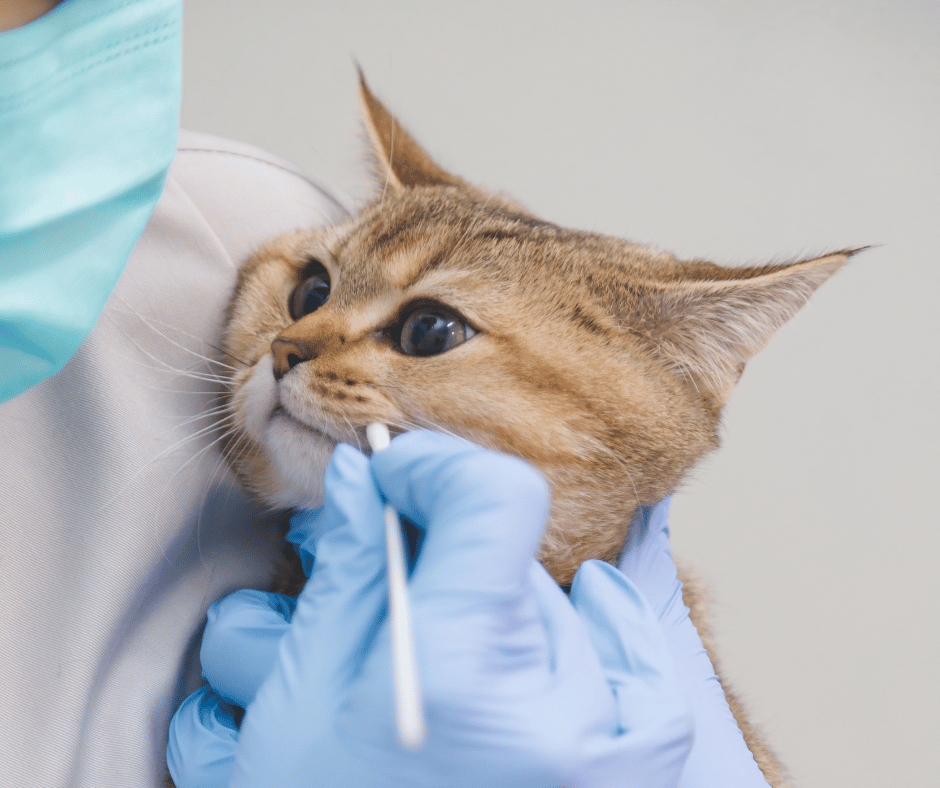15 Human Foods That Are Poisonous & Toxic to Cats
Cats are often curious about their surroundings, including the food on your plate. While it may be tempting to share your snacks with your feline friend, many human foods can be harmful or even fatal to cats. Unlike humans, cats have different metabolic systems, and some substances that are harmless to us can cause severe health problems for them. Here’s an in-depth look at 15 human foods toxic to cats, why they’re dangerous, and what to do if your cat accidentally eats them.
1. Chocolate
Chocolate is one of the most well-known toxic foods for cats. It contains theobromine and caffeine, which are stimulants that cats cannot metabolize. Dark chocolate and baking chocolate contain higher concentrations of these toxic compounds than milk chocolate.
Symptoms of Chocolate Poisoning:
- Vomiting and diarrhea
- Rapid breathing or panting
- Increased heart rate
- Seizures
- In severe cases, coma or death
What to Do:
- If you suspect your cat has eaten chocolate, call your veterinarian immediately.
- Do not induce vomiting unless instructed to do so.
- Treatment may include activated charcoal, IV fluids, and medications to control symptoms.
2. Onions and Garlic
Onions, garlic, chives, and leeks belong to the Allium family, and all are toxic to cats. These foods contain compounds that can damage a cat’s red blood cells, leading to hemolytic anemia.
How Cats May Be Exposed:
- Fresh onions or garlic
- Cooked foods containing onion or garlic powder
- Leftover table scraps
Symptoms of Toxicity:
- Weakness and lethargy
- Pale gums
- Reduced appetite
- Vomiting or diarrhea
- Dark-colored urine
What to Do:
- Take your cat to the vet if they show any signs of anemia.
- Avoid feeding any human food that contains onion or garlic, even in small amounts.
3. Alcohol
Even a tiny amount of alcohol can have serious consequences for cats. Alcohol affects a cat’s liver and brain much more quickly than it does in humans.
Sources of Alcohol Poisoning:
- Beer, wine, or liquor
- Foods prepared with alcohol
- Fermented products like dough
Symptoms of Alcohol Poisoning:
- Vomiting
- Loss of coordination
- Difficulty breathing
- Tremors
- Coma
What to Do:
- Contact your vet immediately if your cat ingests alcohol.
- Treatment may involve supportive care, such as IV fluids and monitoring.
4. Grapes and Raisins
Grapes and raisins are highly toxic to cats and can cause acute kidney failure. The exact toxic substance is still unknown, but even a small amount can be dangerous.
Symptoms of Grape or Raisin Toxicity:
- Vomiting within a few hours of ingestion
- Lethargy
- Loss of appetite
- Reduced urination
- Signs of kidney failure (e.g., swollen abdomen or bad breath)
What to Do:
- Seek veterinary care immediately.
- Early treatment, including inducing vomiting or administering activated charcoal, can prevent severe damage.
5. Raw Eggs
Raw eggs can carry bacteria such as Salmonella or E. coli, which are harmful to cats. Additionally, raw egg whites contain avidin, a protein that interferes with biotin absorption, leading to skin and coat issues.
Symptoms of Contamination or Deficiency:
- Vomiting or diarrhea
- Skin irritation or dull coat
- Lethargy
What to Do:
- Ensure your cat only consumes cooked eggs in moderation.
- If your cat eats raw eggs, monitor for symptoms and consult your vet.
6. Caffeine
Caffeine is found in coffee, tea, energy drinks, and some medications. It stimulates the nervous system and can lead to serious health issues in cats.
Symptoms of Caffeine Poisoning:
- Restlessness or hyperactivity
- Rapid heart rate
- Tremors
- Seizures
What to Do:
- Keep all caffeinated products away from your cat.
- If ingested, contact your vet for immediate care.
7. Raw Fish
While cats are stereotypically portrayed as fish lovers, raw fish can be harmful. It may contain parasites and thiaminase, an enzyme that breaks down thiamine (vitamin B1), leading to neurological issues.
Symptoms of Thiamine Deficiency:
- Loss of appetite
- Tremors
- Seizures
What to Do:
- Avoid feeding raw fish to your cat. Cooked fish is a safer option.
- If your cat shows neurological symptoms, consult your vet.
8. Xylitol
Xylitol, a sugar substitute, is found in sugar-free gum, candies, and some peanut butters. In cats, xylitol causes a rapid release of insulin, leading to hypoglycemia and potentially liver failure.
Symptoms of Xylitol Poisoning:
- Vomiting
- Weakness
- Loss of coordination
- Seizures
What to Do:
- Take your cat to the vet immediately.
- Treatment may involve blood glucose monitoring and supportive care.
9. Avocado
Avocado contains persin, a substance that can cause vomiting and diarrhea in cats. The pit and skin pose additional choking hazards.
Symptoms of Avocado Toxicity:
- Gastrointestinal upset
- Difficulty breathing (if choking occurs)
What to Do:
- Remove access to avocado and monitor for symptoms.
- Consult your vet if symptoms persist.
10. Milk and Dairy Products
While kittens can digest lactose, most adult cats are lactose intolerant. Dairy products can lead to digestive upset.
Symptoms of Lactose Intolerance:
- Diarrhea
- Bloating
- Gas
What to Do:
- Provide water instead of milk.
- Consult your vet for suitable treats.
11. Raw Meat
Raw meat can expose cats to harmful bacteria like Salmonella or E. coli. Bones can also pose a choking hazard.
Symptoms of Foodborne Illness:
- Vomiting and diarrhea
- Lethargy
What to Do:
- Monitor for symptoms and consult your vet if they occur.
- Always cook meat thoroughly before feeding it to your cat.
12. Cooked Bones
Cooked bones can splinter, causing internal injuries or blockages in cats.
Symptoms of Bone-Related Issues:
- Choking
- Vomiting
- Painful abdomen
What to Do:
- Remove the bone and take your cat to the vet for evaluation.
13. Yeast Dough
Raw dough can expand in a cat’s stomach, causing discomfort and bloating. Fermentation also produces alcohol, which is toxic.
Symptoms of Yeast Dough Consumption:
- Swollen abdomen
- Lethargy
What to Do:
- Consult your vet immediately. Surgery may be required in severe cases.
14. Salt
Excessive salt intake can lead to sodium poisoning in cats.
Symptoms of Salt Poisoning:
- Vomiting
- Tremors
- Seizures
What to Do:
- Provide fresh water and call your vet.
15. Citrus Fruits
Citrus fruits like oranges, lemons, and limes contain citric acid and essential oils that can irritate a cat’s digestive system.
Symptoms of Citrus Toxicity:
- Drooling
- Vomiting
- Diarrhea
What to Do:
- Rinse your cat’s mouth and monitor for symptoms.
What to Do If Your Cat Eats Toxic Food
- Stay Calm: Quickly remove the food and ensure your cat has no further access to it.
- Call Your Vet: Provide details about the food, the amount ingested, and your cat’s weight.
- Follow Instructions: Your vet may advise inducing vomiting or monitoring symptoms.
- Visit the Clinic: Bring your cat in for a thorough examination and treatment.
Prevention Tips
- Store toxic foods out of your cat’s reach.
- Educate family members about dangerous foods.
- Stick to a balanced, veterinarian-approved diet for your cat.
By staying informed, you can protect your feline friend from unnecessary risks and ensure their long-term health and happiness.










